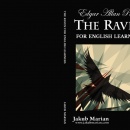 |
One-syllable adjectives with comparative “more” instead of -er
One of the first rules an English learner learns is that the comparative degree of monosyllabic (one-syllable) adjectives is formed by (...)
February 19, 2015 – Jakub Marian – English
|
 |
How to write and publish a non-fiction book
I have recently published my fourth book, and I thought it would be interesting to let my readers know what it takes to self-publish a (...)
February 18, 2015 – Jakub Marian – Blog
|
 |
Are statistical data and scientific results subject to copyright?
I have recently created a map showing the number of books published per year per capita by country in Europe. The figures in the map are (...)
February 4, 2015 – Jakub Marian – Blog
|
 |
“In literature” vs. “in the literature” in English
When people write an essay or a scientific paper, they often say that it is possible to “find something in the literature”. But why “the (...)
February 1, 2015 – Jakub Marian – English
|
 |
‘Got’ vs. ‘gotten’ in English
Let’s not beat around the bush with complicated linguistic terms; the difference between “got” and “gotten” is relatively simple. (...)
January 30, 2015 – Jakub Marian – English
|
By the way, have you already seen my brand new web app for non-native speakers of English? It's based on reading texts and learning by having all meanings, pronunciations, grammar forms etc. easily accessible. It looks like this:
 |
Number of books published per year per capita by country in Europe
Being an author myself, I was very much interested in the number of books published in different European countries. I wasn’t able to find (...)
January 27, 2015 – Jakub Marian – Maps
|
 |
‘Help do’ vs. ‘help to do’ vs. ‘help doing’ in English
Both “help someone do something” and “help someone to do something” are acceptable. The form without “to” seems to be more common in (...)
January 25, 2015 – Jakub Marian – English
|
 |
Lie, lied, lay, laid (and layed) in English
The verbs “lie” and “lay” are perhaps the two most confusing irregular English verbs. “Lie” has two meanings: It can mean “not to tell the (...)
January 23, 2015 – Jakub Marian – English
|
 |
‘Clothes is’ vs. ‘clothes are’ in English
The word for “clothes” is singular in many languages, e.g. la ropa in Spanish or die Kleidung in German, and its plural in most contexts (...)
January 20, 2015 – Jakub Marian – English
|
 |
German ä, ö, ü – what’s the difference?
German alphabet contains three additional symbols for vowels, which are often misunderstood or mispronounced by learners whose mother (...)
January 18, 2015 – Jakub Marian – German
|
